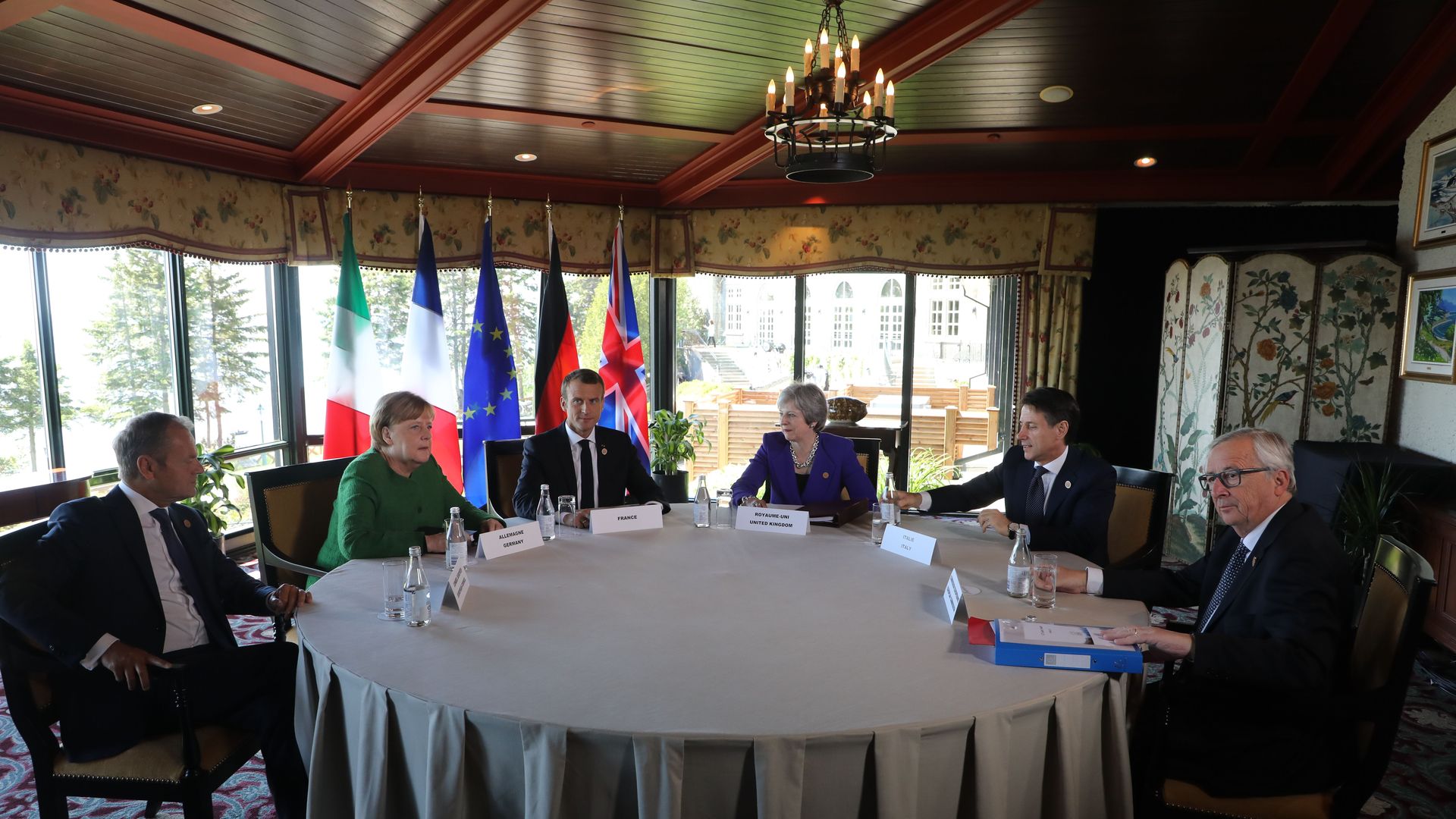Updated Jun 9, 2018 - Economy
Expert VoicesU.S. allies uniting in opposition to Trump trade policies
Add Axios as your preferred source to
see more of our stories on Google.

European leaders at the G7 summit: EC president Donald Tusk, German Chancellor Angela Merkel, French President Emmanuel Macron, British Prime Minister Theresa May, Italian Prime Minister Giuseppe Conte, and the President of the European Commission Jean-Claude Juncker. Photo: Ludivic Marin/AFP/Getty Images
